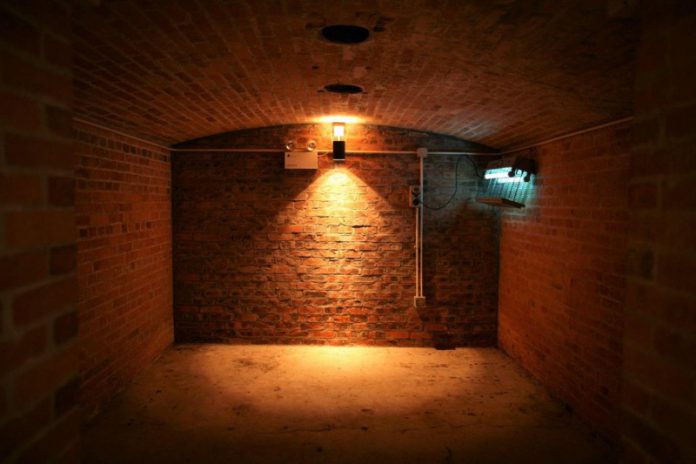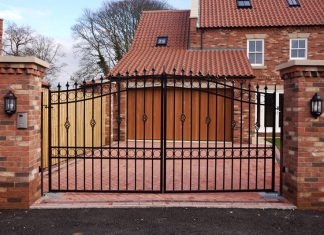Main Text
A basement is a valuable asset for any homeowner. It can serve as an additional storage space, and it provides the perfect place to build your home gym or entertainment room with access to natural light from windows on one side of the house.
A properly waterproofed basement reduces risk significantly in case water penetrates through cracks in concrete foundation walls caused by earth movement or other sources like heavy rainfall that may cause flooding inside your home due loosened joints between flooring slabs which could lead up leaking into electrical wiring insulation, increased humidity levels leading mold growths causing health risks especially among those who are allergic to molds ̶ all these things will make you regret not installing proper waterproofing measures sooner! Opt for basement waterproofing in Philadelphia and see the difference!
What is the importance of basement waterproofing?
Basement waterproofing protects your basement from the harmful effects of natural disasters as well as prevents any kind of external contamination. Having a wet basement poses a lot of problems for you and your family. It can lead to mold growth and asthma attacks in some cases, while wet floors and carpets can also cause allergies and asthma attacks. Basement waterproofing not only prevents these things from happening, it also saves your home from extensive damage and financial losses.
Basement waterproofing protects your house against flooding. Water that seeps into the basement through leaks or other forms of penetration can cause your house’s interior and exterior structures to buckle under the pressure. Basement waterproofing prevents water seepage into the house’s foundation walls by stopping seepage and increasing waterproofing properties. The most common form of water damage in a house is mold growth, since it can be caused by a variety of factors, from water, humidity, and rain to faulty plumbing pipes, overflowing gutters, and busted pipes.
A dry basement prevents moisture from being wasted on cooling and heating systems and, as a result, air quality in the house is improved. The quality of the air in basements can also be improved with proper basement waterproofing. Basements that are left unheated or damp in any manner pose risks to health such as mold spores, poor air quality due to increased moisture and condensation, and more. This can worsen existing medical conditions or even create new medical conditions.
What are the benefits of basement waterproofing?
One of the most important benefits of basement waterproofing is the improvement in air quality. Having a dry basement helps cool air move through your house more efficiently, which improves the quality of the inside environment. Additionally, air circulation increases the flow of fresh air in your home and decreases the amount of moisture trapped inside basements that could lead to mold and mildew. Both of these benefits are especially important during the winter when temperatures in homes tend to rise above 60 degrees for extended periods of time.
Another advantage of basement tanking is the reduction in energy costs. During the winter months, homes lose heat faster than they gain it. Basement waterproofing reduces this loss of heat by diverting excess moisture away from the home’s interior. As a result, a lot of extra energy is saved that could otherwise be used for other energy-efficient appliances or state-of-the-art heating and cooling systems.
Finally, basement waterproofing provides numerous benefits to businesses. Smaller businesses and homes may not seem to require extensive amounts of waterproofing, but the long-term benefits of doing so greatly outweigh the initial cost. By preventing water damage and eliminating the chances of costly mold buildup, waterproofing reduces the risk of liabilities that stem from injuries and property damage as a result of water damage. For instance, basements can be a breeding ground for toxic mold, which could result in serious health problems for employees and can cause structural damage to commercial buildings.
In the long run, basement waterproofing lowers the cost of insurance premiums. The main reason is that it prevents the occurrence of floods and other types of catastrophic water damage. Insurance companies are more likely to offer reduced rates to clients with properly installed waterproofing systems. Moreover, excess water removed from a basement can be recovered from a sewage system since seepage can be addressed through this method.
These are just some advantages of basement tanking. Of course, you have to consider the disadvantages before deciding whether to install it yourself or to hire professionals to do the job. Potential basement waterproofs should also be aware of other potential benefits as well, such as the use of chemicals to eliminate mold and bacteria. It is also important to note that the process of mold removal should only be done when excess moisture levels pose an immediate threat to health and safety. As long as you take precautions to prevent the spread of mold, it should prove worthwhile to spend a few hundred dollars on waterproofing your basement.
Final Take
Basement waterproofing is a necessary step in protecting your home and belongings from the elements. When you have water seeping into your basement, it can lead to disastrous consequences, like mold growth and humidity issues that cause wear on furniture. A professional company can help assess the state of your foundation and recommend steps for correcting any problems they find.














